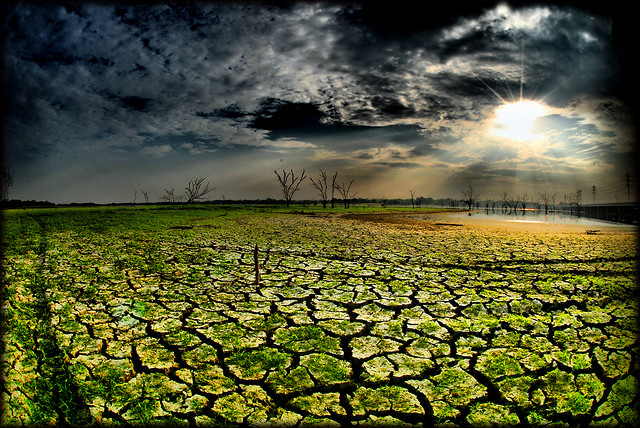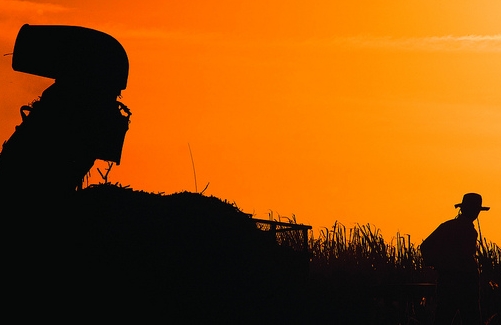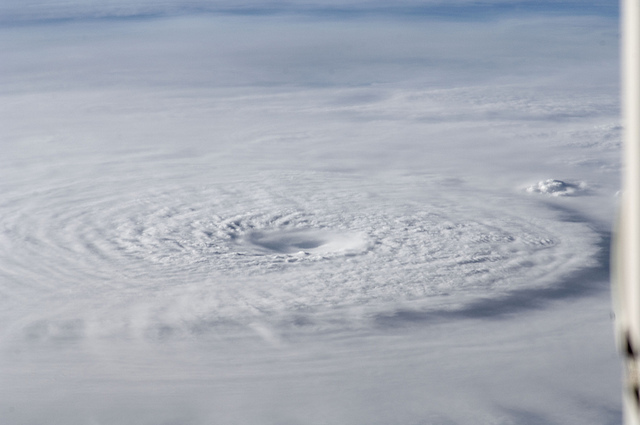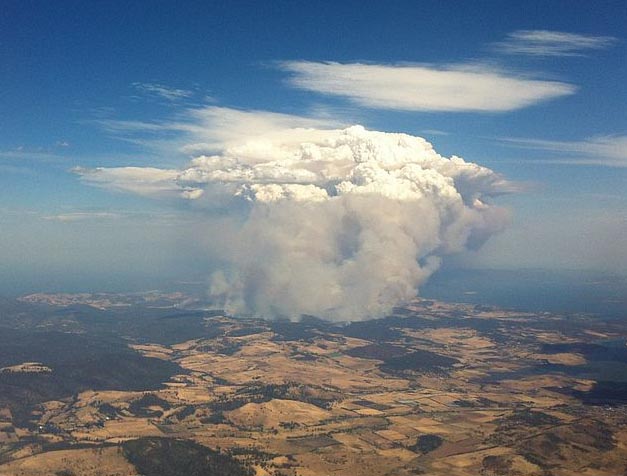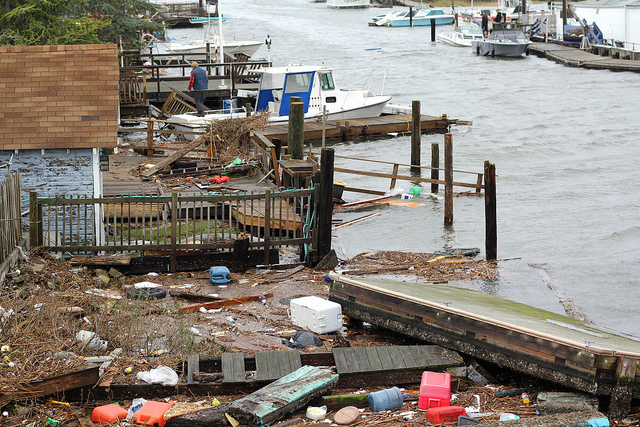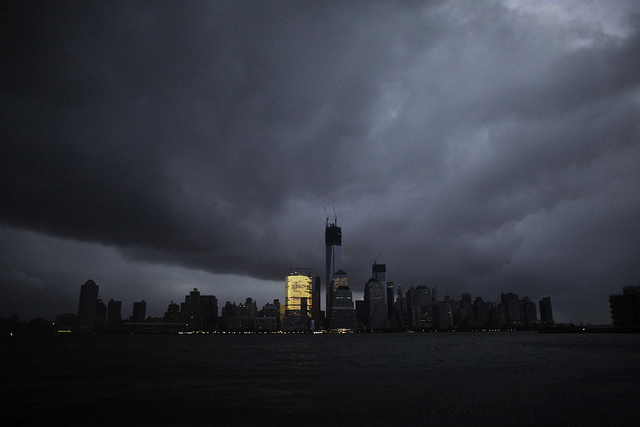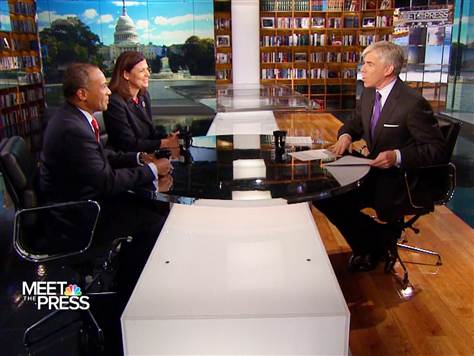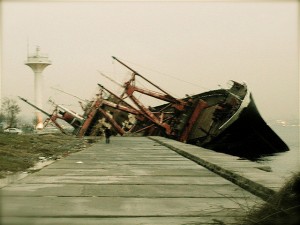Podcast: Play in new window | Download
Subscribe:
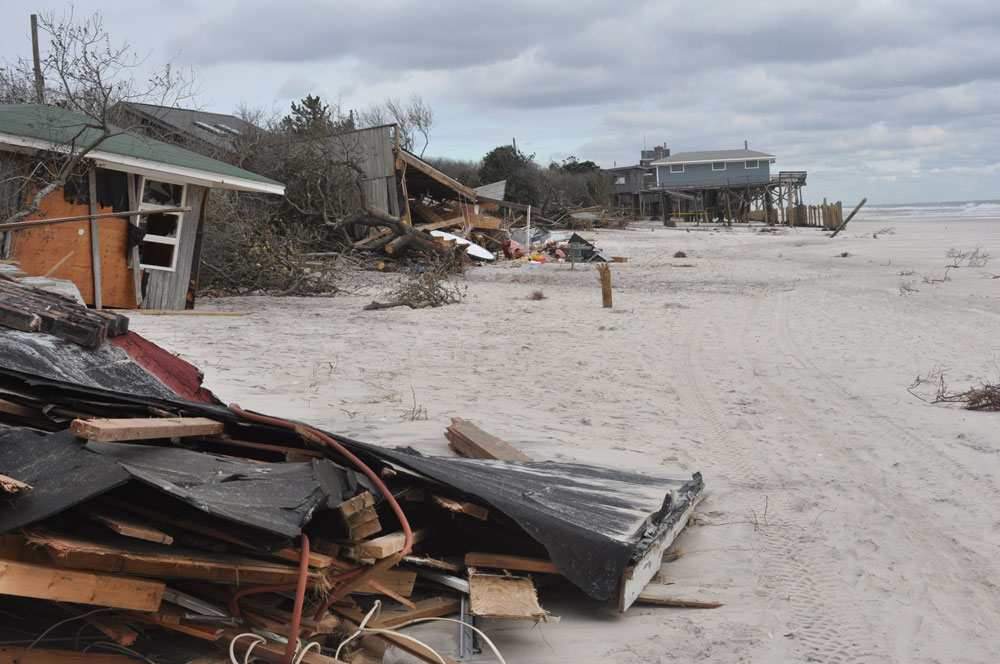
Superstorm Sandy not only did this to Fire Island, NY, but made it easier to do again. (Photo: Cheryl Hapke, USGS)
A week after announcing her retirement, the director of the US Geological Service told a Washington DC conference that Superstorm Sandy fulfilled her worst climate-change nightmare: it blew out the natural defenses against storms along hundreds of miles of the Northeast coastline, leaving them vulnerable to any garden-variety nor’easter that comes along
The USGS is one of the agencies of the US government that tells us the truth, starting with its insistence at the time that the Dust Bowl of the 1930s was a man made disaster, a fact that is not widely enough understood to this day. But it is funded by Congress, and while it has not knuckled under to the knuckle draggers (by, for example, refusing to research global warming issues because many Congress Persons don’t believe in science), neither has it been especially strident about the clear and present danger of climate change, rising sea levels, more frequent and more potent storms, etc. Continue reading →
